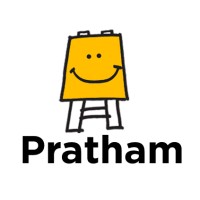
Website UNDP
Background
UNDP is committed to achieving workforce diversity in terms of gender, nationality and culture. Individuals from minority groups, indigenous groups and persons with disabilities are equally encouraged to apply. All applications will be treated with the strictest confidence.
UNDP does not tolerate sexual exploitation and abuse, any kind of harassment, including sexual harassment, and discrimination. All selected candidates will, therefore, undergo rigorous reference and background checks.
UNDP has been working in India since 1951 in almost all areas of human development. Together with the Government of India and development partners, we have worked towards eradicating poverty, reducing inequalities, strengthening local governance, enhancing community resilience, protecting the environment, supporting policy initiatives and institutional reforms, and accelerating sustainable development for all.
With projects and programmes in every state and union territory in India, UNDP works with national and subnational government, and diverse development actors to deliver people-centric results, particularly for the most vulnerable and marginalized communities. As the integrator for collective action on the Sustainable Development Goals (SDGs) within the UN system, we are committed to supporting the Government of India’s national development vision and priorities and accelerating the achievement of the SDGs for the people and the planet.
UNDP India’s current Country Programme, 2018-2022, is in its final year of implementation. Our new Country Programme (2023-2027), which comes into effect in 2023, builds on our prior work and aims to provide an integrated approach to development solutions in three strategic portfolios:
- Strong, accountable and evidence-led institutions for accelerated achievement of the SDGs
- Enhanced economic opportunities and social protection to reduce inequality, with a focus on the marginalized
- Climate-smart solutions, sustainable ecosystems and resilient development for reduced vulnerability
South-South cooperation, gender equality and social inclusion are promoted across the pillars. The programme is supported by a framework of renewed partnerships and blended finance solutions, strategic innovation and accelerator labs, and data and digital architecture.
You are invited to join a team of future-smart development professionals to support India in achieving the national and globally agreed goals. As part of the UNDP team, your focus will be to work with diverse stakeholders to find country-specific solutions that lead to sustainable development and reach those furthest behind first.
The Government of India has accorded high priority and adopted multifaceted development strategies to promote socio-economic growth of Scheduled Tribes (STs) constituting 8.6% of the India’s total population as their human development indicators with regards to health, education, gender and other indices are well below the national average.
The Ministry of Tribal Affairs (MoTA) being the nodal Ministry for overall policy, planning and coordination of programmes for development of STs, has been pursuing the agenda of inclusive growth with Central and State governments to address the critical gaps in development of STs.
Though there are 75 tribal groups identified as Particularly Vulnerable Tribal Groups (PVTGs) across the country, their cultural practices, self-governance structures, livelihood practices and socio-economic situation vary widely from one group to another. Inspite of special scheme for their protection and development, many PVTGs have become more vulnerable over the decades, due to loss of their customary habitats and livelihood resources.
One of the key interventions under the MoTA-UNDP project ‘Enhancing effectiveness of tribal development programmes in India’, the States with PVTGs concentration will be provided with technical support to develop group-specific development plans which will focus on the unique and special situation/needs of each group including preservation and nurturing of their tradition and culture.
Duties and Responsibilities
UNDP proposes to hire a Project Officer (PVTG) who will be responsible for providing high quality inputs, overall provide technical and coordination support for overall development of PVTGs. The Project Officer (PVTGs) will work under the overall supervision of The Project lead CPMU and in close collaboration with the UNDP Programme Officer and Project Team members. CPMU will function under the overall guidance of the Joint Secretary, MOTA
- Establishing real time and robust monitoring systems for various projects sanctioned under the scheme for Development of PVTGs through ADIGRAMS portal.
- Constitution of Micro-Plan projects in PVTG areas for focused development of the PVTG group.
- Partnering with State Tribal Development Departments / Tribal Research Institutes in conducting village- wise PVTG population survey and socio-economic survey.
- Provide technical support to Ministry in SGoS related work including coordination with 5 member Ministries and 4 National Commissions.
- Collaboration with State Tribal Development/ Welfare department in implementing Habitat Rights for PVTGs as provided under Forest Rights Act-2006 under section 3(1)e.
- Regular updating, maintenance, and Strengthening of Tribal Repository portal.
- Bring in technical knowledge in preparation & issuance of guidelines, facilitative circulars/orders, policy briefs.
- Ensure that project contributes to the promotion of gender equality by reaching, involving and benefiting both women and men in its activities (gender mainstreaming)
Competencies
Core Competencies:
- Achieve Results: LEVEL 1: Plans and monitors own work, pays attention to details, delivers quality work by deadline
- Think Innovatively: LEVEL 1: Open to creative ideas/known risks, is pragmatic problem solver, makes improvements
- Learn Continuously: LEVEL 1: Open minded and curious, shares knowledge, learns from mistakes, asks for feedback
- Adapt with Agility: LEVEL 1: Adapts to change, constructively handles ambiguity/uncertainty, is flexible
- Act with Determination: LEVEL 1: Shows drive and motivation, able to deliver calmly in face of adversity, confident
- Engage and Partner: LEVEL 1: Demonstrates compassion/understanding towards others, forms positive relationships
- Enable Diversity and Inclusion: LEVEL 1: Appreciate/respect differences, aware of unconscious bias, confront discrimination
Cross-Functional & Technical Competencies:
Business Direction and Strategy
- Strategic thinking: Ability to understand and deal with a business situation in a manner that is likely to lead to a good outcome. Knowledge and understanding of the operational frameworks in the organization and ability to make good judgments and quick decisions within such frameworks.
Business Management
- Evaluation: Ability to make an independent judgement based on set criteria and benchmarks -Ability to anticipate client’s upcoming needs and concern
- Working with Evidence and Data: Ability to inspect, cleanse, transform and model data with the goal of discovering useful information, informing conclusions and supporting decision-making.
Business Development
- Knowledge Generation: Ability to provide managers and key stakeholders with regular feedback on the consistency or discrepancy between planned and actual activities and programme performance and results.
Digital Innovation
- Data analysis: Ability to extract, analyse and visualize data (including Real-Time Data) to form meaningful insights and aid effective decision making.
Required Skills and Experience
Education:
- Essential: Master’s degree or equivalent in Social Sciences or relevant field – development management, rural development, social work, public policy or;
Bachelors with 2 years of experience in the similar field will also be given due consideration
Experience:
- Bachelors with 2 years of experience in the similar field development management/studies, rural development, social work, public policy
- Sound knowledge of development challenges and solutions for Scheduled Tribes with specific focus on PVTGs will be preferred
- Good understanding of tribal development related schemes/ programmes, especially for PVTGs
- Knowledge of functioning of Institutions such as Tribal Research Institutes
- Relevant experience in documentation and preparation of reports on development issues
High-level of IT/computing skills (minimum: Microsoft Outlook, Word, Excel, PowerPoint)
Language Requirement:
Excellent knowledge of written and spoken English is essential. Knowledge of hindi is desirable.
NOTE: This position is open for India nationals only
To apply for this job please visit estm.fa.em2.oraclecloud.com.





